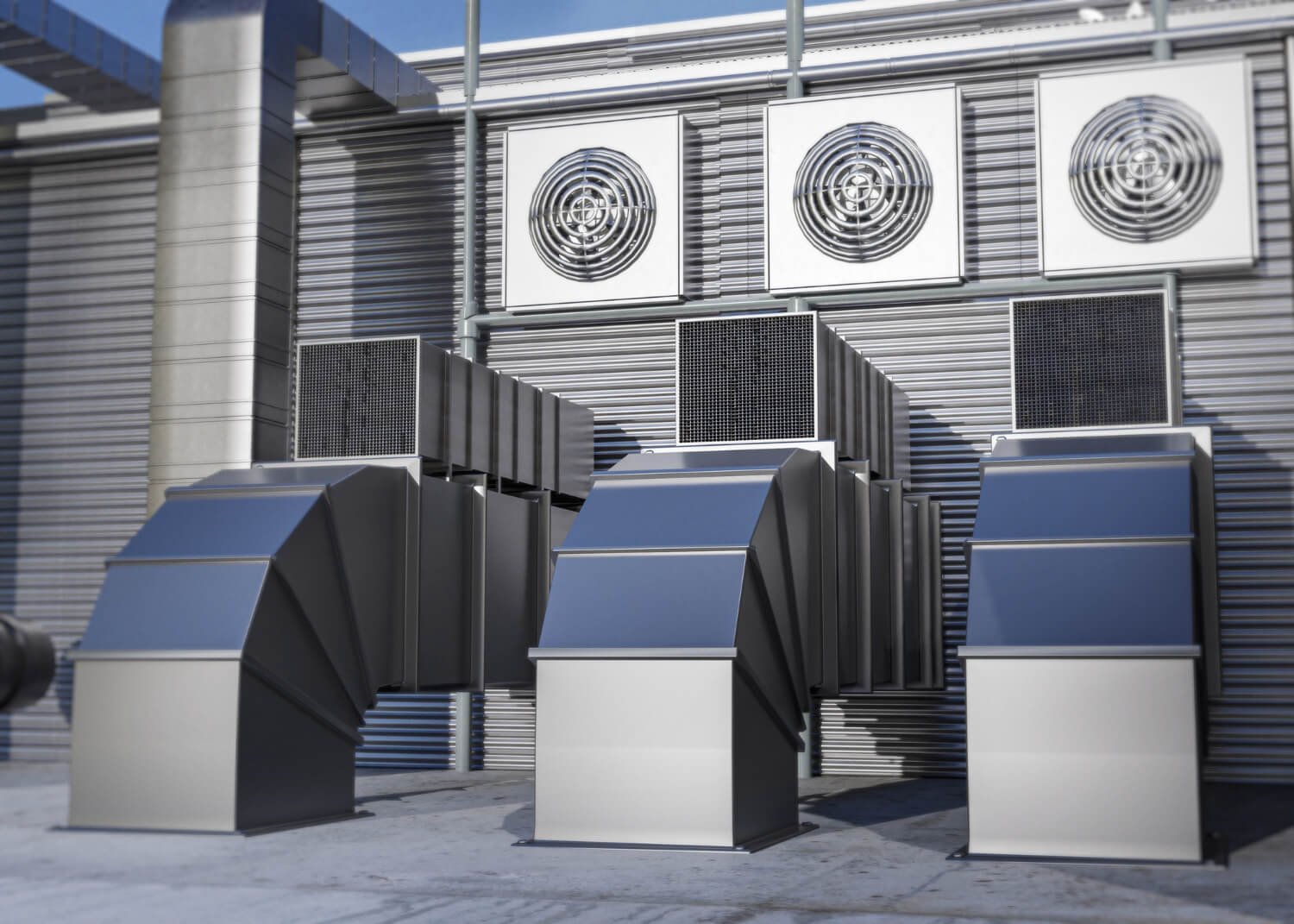
When it comes to managing the comfort of a commercial space, the right HVAC system can make a big difference. Whether you’re cooling a retail store, office building, or industrial warehouse, finding the right system is key to keeping energy costs manageable and ensuring the comfort of your employees and customers. However, commercial HVAC systems come in several types, each designed to meet specific needs.
Here’s a breakdown of the main types of commercial HVAC systems and how to choose the best one for your business.
Packaged Systems
Packaged HVAC systems are popular for commercial buildings that don’t have a lot of space for separate heating and cooling units. As the name suggests, all components—such as the compressor, condenser, and evaporator—are housed in a single unit, often placed on the roof or a mechanical room.
These systems are ideal for smaller businesses or buildings where space is limited. They can efficiently provide both heating and cooling, which makes them a practical choice for businesses looking to simplify their HVAC setup.
Split Systems
A split system is one of the most common types of commercial HVAC systems, and it works well for a wide range of building sizes. This system separates the heating and cooling components into two distinct units—one for cooling and one for heating.
In Florida’s warm climate, businesses often rely on the cooling aspect of a split system more than the heating, but having both available offers flexibility. A split system is a good option for buildings with enough space to accommodate both an indoor and outdoor unit.
Variable Refrigerant Flow (VRF) Systems
Variable refrigerant flow (VRF) systems are designed to offer flexibility and energy efficiency, making them perfect for large buildings with varying heating and cooling needs. A VRF system uses a single outdoor unit that can be connected to multiple indoor units, allowing for zoned temperature control.
This type of system is great for buildings where different areas may need different temperatures, like offices or multi-tenant spaces. For example, if one part of the building is exposed to more sunlight, it may require more cooling than another area. A VRF system can adjust to those needs, saving energy and improving comfort.
Heat Pumps
In Florida’s milder winters, heat pumps are a cost-effective solution for commercial heating and cooling. These systems transfer heat from the air or ground to heat your building in the winter and reverse the process to cool it in the summer.
Since they don’t rely on fuel-burning components to generate heat, heat pumps are more energy-efficient than traditional heating systems. They are an excellent choice for businesses looking to reduce energy costs, especially in areas where the climate rarely dips into freezing temperatures.
Rooftop Units
Rooftop HVAC units are a common sight on commercial buildings and for good reason. These systems house all the necessary components in one large unit, keeping the HVAC system out of the way while freeing up space inside the building.
Rooftop units are often used in retail stores, restaurants, and other commercial spaces where floor space is at a premium. They’re also relatively easy to maintain since technicians can access them without disrupting your daily operations. For businesses in Florida, rooftop units are a convenient solution to handle the heavy cooling load that’s often needed in the summer months.
Ductless Mini-Split Systems
For businesses that don’t have existing ductwork, a ductless mini-split system is a flexible and efficient option. Like the name implies, these systems don’t require ducts to distribute air throughout the building. Instead, they use small wall-mounted units to cool or heat individual rooms.
Mini-split systems are ideal for buildings that have been renovated or retrofitted, as they eliminate the need for extensive ductwork. They also offer the benefit of zoned cooling and heating, making it easier to control the temperature in specific areas.
Choosing the Right System
When choosing a commercial HVAC system, it’s important to consider factors like the size of your building, your specific heating and cooling needs, and your energy efficiency goals. A small retail shop will have very different needs from a multi-story office building or a large warehouse. It’s also important to think about long-term maintenance costs and the ability to expand or upgrade your system as your business grows.
Conclusion
If you’re not sure which type of HVAC system is right for your Florida business, our team can help. We’ll assess your space, understand your needs, and recommend a solution that keeps your building comfortable and energy-efficient year-round.
Reach out to Kyzar Air Conditioning today to learn more about our commercial HVAC services and how we can help your business find the right system.